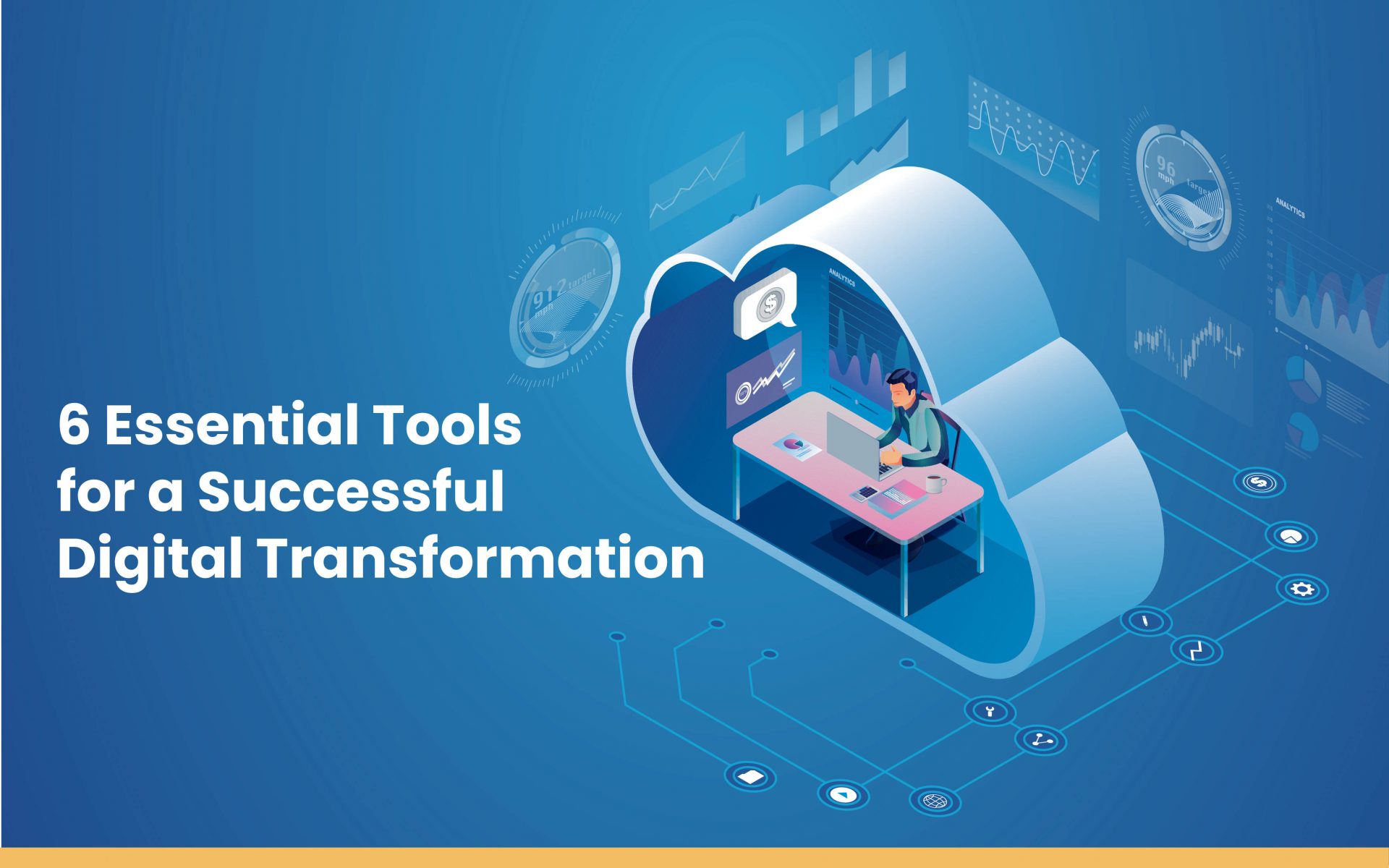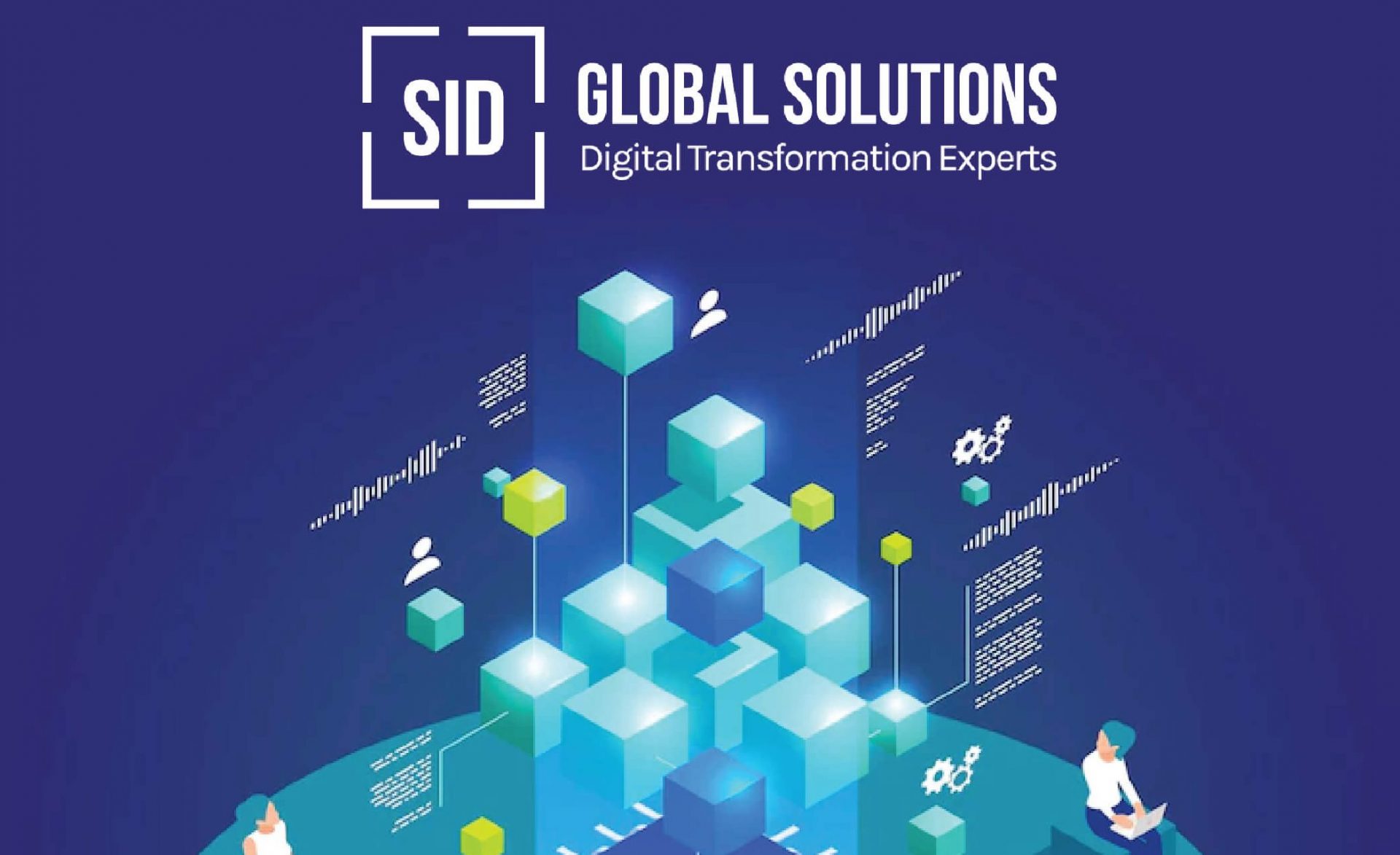Blogs
To know about all things Digitisation and Innovation read our blogs here.
Digital Transformation
6 Essential Tools for a Successful Digital Transformation
SID Global Solutions
9 February 2023

Digital transformation is a process of utilizing digital technologies to fundamentally change the way organizations operate and deliver value to customers. It requires organizations to reconsider their traditional business processes, culture, and operations, and embrace the digital world in a meaningful way. The goal of digital transformation is to create new value for customers, increase efficiency and competitiveness, and improve the overall business performance. To achieve this, organizations need to understand and implement the most important deliverables and tools. In this guide, we will discuss the key deliverables and tools that are critical for successful digital transformation.
Customer Experience (CX) Design
Customer experience (CX) design is one of the most critical deliverables in digital transformation. It involves putting the customer at the center of all business operations and processes. Organizations must understand their customers’ needs, wants, and expectations, and design their digital platforms and services around those needs. The goal is to provide a seamless, efficient, and personalized experience for customers.
Also Read: How Low-Code Software Tools are Fueling Digital Transformation?
CX design involves understanding the customer journey, mapping out touchpoints, and identifying pain points and opportunities for improvement. The ultimate goal is to create an experience that meets or exceeds customer expectations, which can help to increase customer satisfaction and loyalty. To achieve this, organizations must engage with customers, gather feedback, and continuously iterate and improve their CX design.
Agile Methodologies
Agile methodologies are iterative, collaborative approaches to software development that focus on delivering value to customers in small increments. This approach allows organizations to quickly respond to changing customer needs and market conditions. It is an important deliverable in digital transformation because it enables organizations to continuously iterate and improve their digital offerings based on customer feedback.
Agile methodologies are characterized by regular, short development cycles, frequent communication between team members, and a focus on delivering value to customers. This approach encourages collaboration, experimentation, and continuous improvement, which are key components of digital transformation. By embracing agile methodologies, organizations can quickly respond to changing customer needs, iterate and improve their digital offerings, and increase efficiency and competitiveness.
Cloud Computing
Cloud computing is a key tool in digital transformation. It enables organizations to store, process, and access data and applications over the internet, instead of on-premise servers. This provides organizations with greater flexibility, scalability, and cost-effectiveness, allowing them to respond quickly to changing business needs and customer demands.
The cloud also enables organizations to leverage advanced technologies, such as big data and analytics, AI and ML, and cybersecurity, without having to invest in expensive hardware and software. This can help organizations to rapidly scale their digital offerings, increase efficiency and competitiveness, and reduce costs. To successfully leverage cloud computing in digital transformation, organizations must understand their specific business needs, select the right cloud solution, and plan for a seamless transition to the cloud.
Also Read: 7 Crucial Elements of Digital Transformation
Big Data and Analytics
Big data and analytics are critical components of digital transformation. They allow organizations to collect, store, and analyze large amounts of data to gain insights into customer behavior, market trends, and operational performance. These insights can then be used to inform business decisions, improve customer experiences, and drive operational efficiency.
Big data and analytics enable organizations to leverage vast amounts of data from a variety of sources, including customer interactions, sensors, and social media. By analyzing this data, organizations can gain insights into customer behavior, identify trends and patterns, and make data-driven decisions. This can help organizations to improve their CX design, increase efficiency and competitiveness, and respond quickly to changing customer needs.
Artificial Intelligence and Machine Learning
Artificial intelligence (AI) and machine learning (ML) are technologies that enable computers to learn from data and make predictions or decisions without being explicitly programmed. These technologies are increasingly being used in digital transformation to automate tasks, improve customer experiences, and enhance business processes.
For example, AI and ML can be used in customer service to provide personalized and automated responses to customer inquiries. This can improve efficiency and reduce wait times, while also providing customers with a more personalized experience. AI and ML can also be used in marketing to personalize campaigns, target the right customers, and optimize ad spend.
Also Read: DevSecOps – The Most Sought-after Secured Integration Practice
In order for organizations to effectively leverage AI and ML in digital transformation, they must have access to high-quality data, a strong data governance framework, and the right talent and resources. It is also important for organizations to consider the ethical and legal implications of AI and ML, and ensure that they are used in a responsible and transparent manner.
Cybersecurity
Cybersecurity is an essential consideration in digital transformation. As organizations become increasingly reliant on digital technologies, they must ensure that their systems and data are protected against cyber-attacks, data breaches, and other security threats. This is particularly important given the increasing sophistication and frequency of cyber-attacks, as well as the growing number of regulatory requirements around data protection and privacy.
To effectively address cybersecurity in digital transformation, organizations must implement robust security measures, including firewalls, encryption, and multi-factor authentication. They must also regularly monitor and assess their security posture, respond quickly to security incidents, and ensure that their employees are trained on best practices for data protection and privacy.
In conclusion, digital transformation is a complex and challenging process that requires organizations to rethink their traditional business processes and embrace new technologies and approaches. By focusing on the most important deliverables and tools, such as CX design, agile methodologies, cloud computing, big data and analytics, AI and ML, and cybersecurity, organizations can increase efficiency, competitiveness, and customer satisfaction, and ultimately achieve their digital transformation goals.









